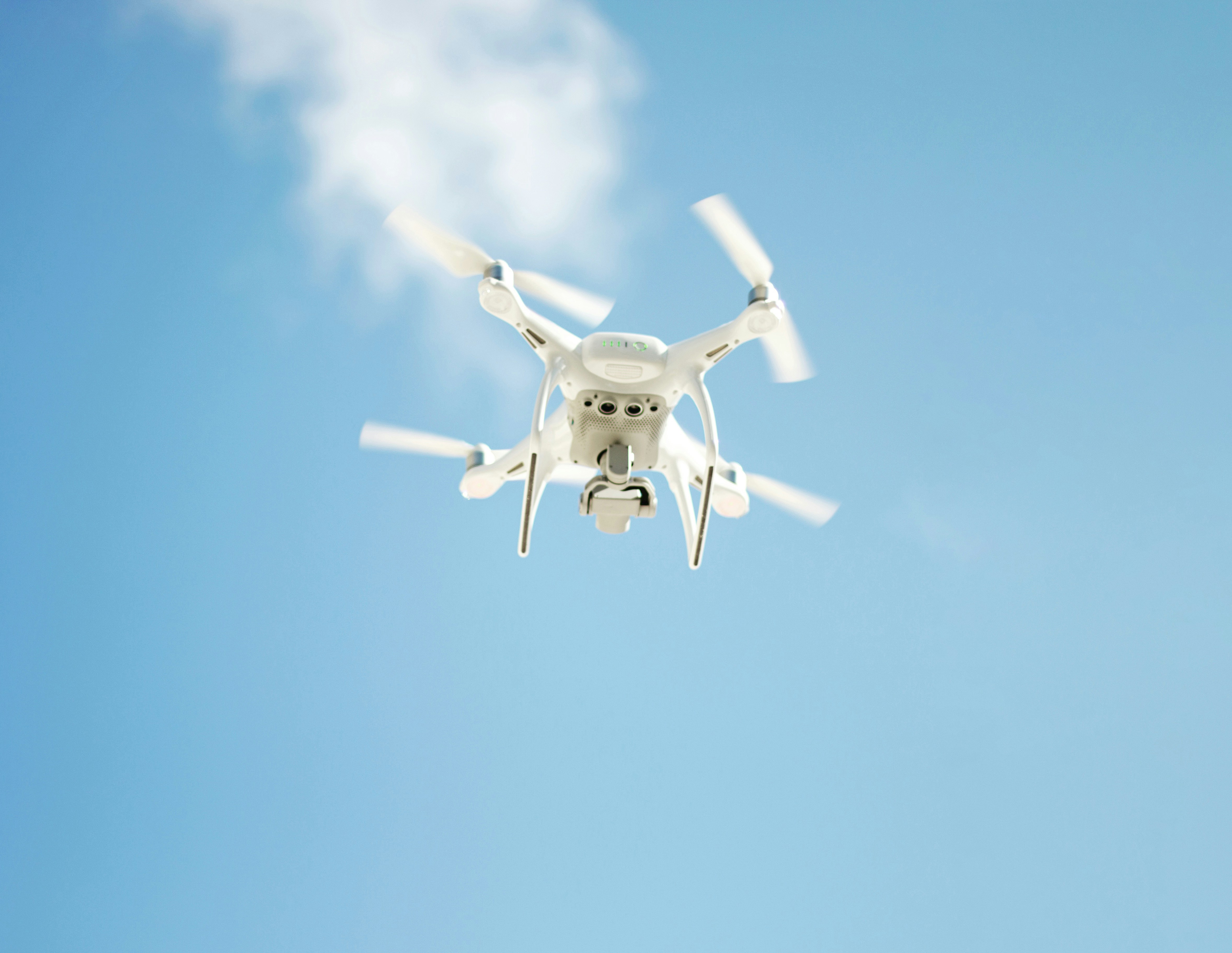
The Ultimate Assessment-Centre Survival Guide for UAV Jobs in the UK
Assessment centres for unmanned aerial vehicle (UAV) positions in the UK are designed to simulate the precision, safety and teamwork required in drone operations. Through psychometric assessments, flight simulation tasks, mission-planning workshops, technical case studies and behavioural interviews, recruiters evaluate your piloting skills, technical knowledge and collaborative approach. Whether you’re aiming for roles in survey drones, delivery systems or defence applications, this guide will walk you through every stage to ensure you stand out and secure your next UAV role.
Why Assessment Centres Matter for UAV Roles
UAV careers demand a blend of aeronautical understanding, remote-system control and regulatory compliance. Assessment centres allow employers to assess:
Flight proficiency: Your ability to navigate simulators accurately and handle emergency scenarios.
Technical knowledge: Familiarity with UAV components, avionics and data link systems.
Mission planning: Collaborative design of flight plans that meet operational objectives while ensuring safety.
Soft skills: Communication, teamwork and decision-making under pressure.
Performing well across these activities—from UAV psychometric tests UK to group mission-planning drills—demonstrates you have the well-rounded skill set employers seek.
Pre-Centre Preparation
Start your preparation 4–6 weeks before the assessment centre:
Research the operator and platform
Identify UAV models in use (fixed-wing, rotary, VTOL) and their typical applications.
Review company case studies, safety incident reports and industry regulations (CAA, EASA).
Clarify the agenda
Confirm which exercises to expect: psychometric assessments, flight simulations, mission-planning workshops, technical and behavioural interviews.
Request a detailed schedule from HR if not provided.
Refresh core technical knowledge
Aerodynamics fundamentals: lift, drag, stability.
Avionics and control systems: autopilot modes, sensor integration and fail-safe protocols.
Practice flight simulations
Use certified simulators or training software to rehearse take-off, navigation, landing and emergency procedures.
Time yourself on standard missions: waypoint navigation, obstacle avoidance and precision landings.
Mock group workshops
Collaborate on mission scenarios: define objectives, risk assessments and contingency plans.
Prepare brief presentations of your flight plan and safety measures.
Cracking Psychometric Assessments
Psychometric tests provide objective measures of reasoning, personality and reaction under stress—critical in UAV operations.
Common Formats
Numerical Reasoning: Interpret telemetry data, performance charts and weather statistics (20–30 mins).
Logical Reasoning: Sequence pre-flight checklist steps or identify anomalies in system logs (15–20 mins).
Verbal Reasoning: Comprehend regulatory excerpts, flight manuals or technical bulletins (20–25 mins).
Situational Judgement: Choose best responses in simulated flight emergencies or team conflicts (15–20 mins).
Preparation Tips
Practice with aviation-themed question banks.
Refresh basic statistics, chart interpretation and scenario analysis.
Simulate timed sessions to build accuracy and confidence.
Flight Simulation Challenges
Simulated flight tasks assess your piloting skills, situational awareness and emergency handling.
Typical Exercises
Perform a standard mission: take-off, waypoint navigation, target surveying and landing.
Execute precision manoeuvres: confined-area landings or obstacle avoidance drills.
Respond to emergencies: simulated engine failure, GPS loss or low-battery scenarios.
Best Practices
Follow checklists: Demonstrate a disciplined pre-flight routine.
Maintain situational awareness: Monitor instruments, wind conditions and airspace restrictions.
Communicate clearly: Verbalise intentions and status updates during simulation.
Calmly manage emergencies: Prioritise safe landing procedures and contingency actions.
Collaborative Mission-Planning Workshops
Group exercises test your ability to design safe, efficient flight operations in a team environment.
Scenario Examples
Planning a search-and-rescue mission over varied terrain.
Designing a precision agriculture survey with multispectral sensors.
Coordinating a BVLOS (Beyond Visual Line of Sight) delivery operation in urban areas.
Stand-Out Strategies
Kick off by clarifying mission goals, airspace constraints and regulatory requirements.
Assign clear roles: flight planner, safety officer, data analyst and presenter.
Use data-driven risk assessments: weather, obstacles, communications coverage.
Conclude with a concise flight plan: waypoints, altitudes, emergency landing zones and SOPs.
Technical Case Studies and Presentations
Case studies evaluate your problem-solving skills and technical communication.
Presentation Structure
Problem definition: Outline operational challenge and constraints.
Analysis: Discuss technical options (platform choice, sensor payloads, communication links).
Solution: Propose a detailed plan, including equipment specs and flight procedures.
Implementation: Detail timelines, resource needs and success metrics.
Delivery Tips
Use clear visuals: flight path maps, risk matrices and system diagrams.
Avoid jargon: explain technical terms for non-specialist assessors.
Prepare for questions: anticipate queries on safety, cost and regulatory compliance.
Individual Interviews: Technical & Behavioural
Interviews delve into your UAV expertise and teamwork approach.
Technical Interview Focus
In-depth discussions on flight dynamics, sensor integration and autopilot tuning.
Troubleshooting exercises: diagnosing communication blackspots or sensor faults.
Regulatory knowledge: CAA regulations, airspace classifications and flight permissions.
Behavioural Interview Focus
Use the STAR method:
Situation: A challenging UAV mission or technical failure.
Task: Your role—pilot, mission planner or technical lead.
Action: Steps taken—revising plans, coordinating with stakeholders, implementing fixes.
Result: Quantify success—mission completion, data quality or safety outcomes.
Lunch Etiquette & Informal Networking
Informal breaks offer insight into your cultural fit and communication style.
Lunch Best Practices
Arrive punctually, follow polite table manners and hygiene protocols.
Engage in inclusive conversation: drone technology trends, hobbies or travel experiences.
Offer to share condiments or discuss favourite UAV missions.
Minimise device use; stay fully present in discussion.
Networking Pointers
Ask assessors about their operational challenges and success stories.
Discuss emerging regulations: U-space, BVLOS approvals and air traffic integration.
Exchange LinkedIn details for post-event follow-up.
Managing Stress and Staying Focused
UAV assessment days can be demanding—practice self-care strategies.
Ensure 7–8 hours’ sleep and a balanced breakfast.
Take micro-breaks: step outside, stretch or practise breathing techniques.
Stay hydrated and keep a light snack handy.
Use positive affirmations: recall successful flight tests or missions.
Post-Centre Follow-Up & Reflection
A professional follow-up solidifies your impression.
Thank-you emails: Personalise to each assessor, referencing specific tasks or discussions.
Self-review: Note strengths and areas for improvement—flight precision, mission planning or teamwork.
Continued engagement: Share relevant articles or insights on LinkedIn to remain on their radar.
Conclusion
Succeeding at a UAV assessment centre in the UK requires a blend of precise piloting, technical insight and collaborative planning. By mastering psychometric assessments, flight simulations, mission-planning workshops, case studies and interviews—and by presenting yourself professionally during informal interactions—you’ll demonstrate the competencies needed to excel in UAV operations.
Call to Action
Ready to take your UAV career to new heights? Visit UAV Jobs to explore the latest opportunities, access specialised resources and subscribe to tailored job alerts. Launch your UAV career today!
FAQ
Q1: How early should I prepare for a UAV assessment centre? Begin 4–6 weeks ahead with simulator practice, regulatory refreshers and mock planning exercises.
Q2: Which UAV platforms and simulators should I be familiar with? Common tools include DJI flight simulators, RealFlight, X-Plane and industry-standard mission-planning software.
Q3: How can I demonstrate risk management skills in group workshops? Use structured risk matrices, weather data and contingency planning to justify decisions.
Q4: Are informal interactions really assessed? Yes—table manners and networking breaks reveal your communication style and cultural fit.
Q5: What’s the ideal timeline for follow-up? Send personalised thank-you emails within 24–48 hours and connect on LinkedIn to maintain engagement.


